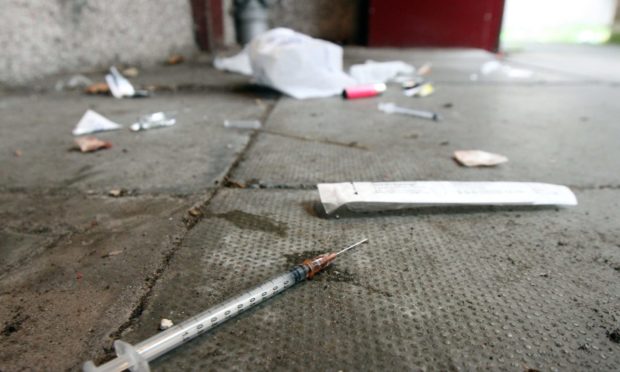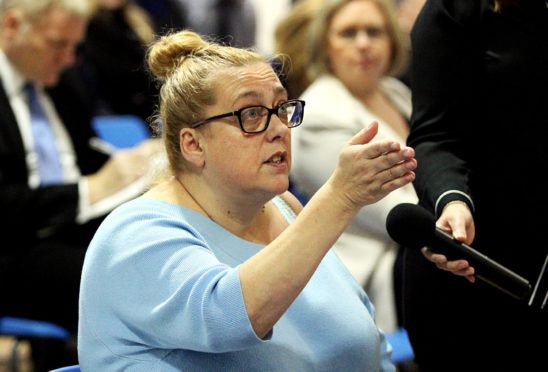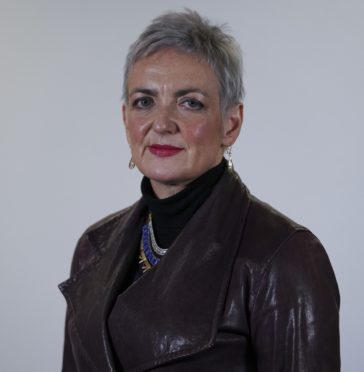A ‘pioneering’ new project to combine addiction and mental health services to tackle drug abuse and deaths in Dundee has been announced.
The new project hopes to strengthen the city’s efforts to tackle drugs deaths and the mental health problems associated with substance misuse.
Last year, drug-related deaths in Dundee hit a record high, after rising for the sixth consecutive year.
The integrated substance use and mental health response will be delivered in communities and provide a crisis service in the evenings and over the weekend.
Such integration of mental health and substance abuse services has not yet been seen in Scotland, and will test how such a strategy works.
Funded for two years, it will complement ongoing separate initiatives across Dundee to provide mental health assistance to people.
Dedicated mental health emergency vehicle
This includes the provision of a dedicated mental health emergency vehicle which has been put to use in other projects, as well as the development of a Community Wellbeing Hub which will be “always open” and operate 24/7.
Development of the new project followed the Dundee Drugs Commission and the Independent Inquiry into Mental Health services in Tayside.
Under the Dundee Alcohol and Drug Partnership (ADP) Action Plan for Change, the new initiative forms part of a collective response to the city’s drugs death situation.
The Dundee Drugs Commission will reconvene this summer to review implementation of its recommendations. Meanwhile, a statement of intent from city leaders underlining their commitment to tackle drugs deaths has been sent to front-line workers.
It comes after strong calls for a dedicated mental health crisis centre to be opened in Dundee.
Councillor Ken Lynn, chairman of the Dundee Health and Social Care Partnership’s Integration Joint Board, said: “Work beginning on this new initiative illustrates how determined we are to intervene and make a real difference to people’s lives.
Dundee drugs deaths situation ‘unprecedented’
“The situation in Dundee is unprecedented and demands the strongest response possible.
“Our innovative work to provide a joint substance use and mental health approach will be Scotland-leading and I hope will integrate services in a vastly improved way for the people who really need them.
“Everyone involved in this effort from across the wider Dundee Partnership is absolutely determined to turn this terrible situation around.
“However, we are under no illusions about the scale of the task and the commitment it will take to heal decades of tragedy.
“We are committed to doing this properly. It is members of our communities and their families and friends who are suffering and they deserve a better future.”
Mandy Mclaren, a mental health campaigner in Dundee, also welcomed the project but wondered whether it would be enough.
“The emergency vehicle is good, but in a city like Dundee that’s plagued by drug abuse, mental health, and drug deaths I don’t know if that’s going to be enough,” she said.
She also stressed that it shouldn’t come at the expense of other services to tackle mental health problems in the city.
“The left-hand needs to know what the right is doing,” she added.
Michael Marra, Labour MSP for the North East, welcomed the project.
Mental health care exclusion
“This project is a welcome start to the huge shift in culture and practice needed in our health services in the city,” he said.
“Having a drug addiction must not exclude you from mental health care. For too long that has been the case.
“This is just one part of the overhaul of mental health services that is urgently needed and that has been long campaigned for by families across Dundee.
“The pandemic has made that remobilisation ever more vital.”
The project is being part-funded through the Drug Deaths Taskforce Innovation Fund, which was launched by the Scottish Government last year in response to the rising number of fatalities.
Scottish Government drugs policy minister Angela Constance said: “I welcome this new project.
“We know that only around half of those most at risk from death are currently accessing treatment and I am determined, as part of our national mission on drug deaths, to increase that number and ultimately save lives.
“We believe this initiative will encourage more people to come forward for help as it offers a more person-centred and integrated approach to treatment, including mental health services where appropriate.
“Importantly, support will also be available for the families of those with problematic drug use.”


